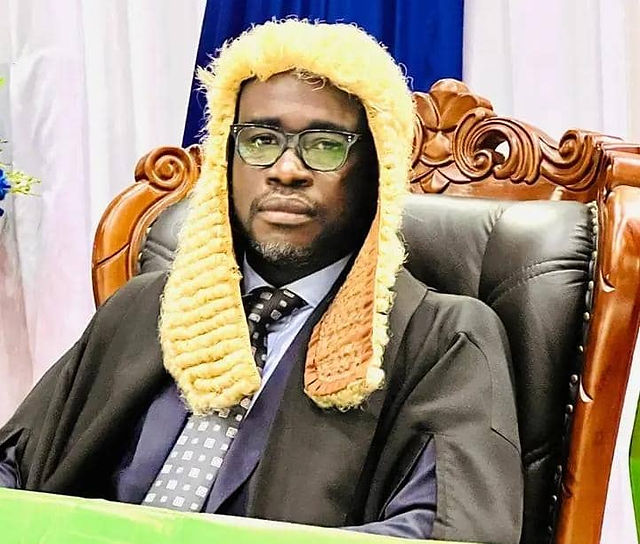By Amin Kef (Ranger)
In a pressing statement issued on Monday July 29, 2024, Abu A. Brima, lead representative of the Natural Resource Governance and Economic Justice – Sierra Leone Network (NaRGEJ-SL), has called on the Government to suspend the implementation of the Management Service Agreement concerning the country’s Mineral Wealth Fund. The civil society consortium highlights concerns about transparency and public consultation.
NaRGEJ-SL commends the Government’s efforts under President Julius Maada Bio in enhancing the governance of Sierra Leone’s mineral sector since April 2018. Key initiatives include the Geological Airborne Survey supported by the World Bank, the introduction of three critical Mineral Sector Policies and the enactment of the revised Mines and Minerals Development Act and Customary Land Rights Act. However, the recent agreement with Mountview Konzem Management DMCC (Mountview) raises significant concerns.
Signed in January 2023 and ratified by Parliament in April 2023, the 10-year agreement with Mountview, extendable up to 20 years, lacks adequate public consultation and transparency, according to NaRGEJ-SL. The consortium questions the recruitment and qualifications of Mountview’s management and the adherence to the Public Procurement Act in this significant contract.
Sierra Leone, rich in mineral resources, has seen minimal benefit to its population, particularly in mining communities suffering from poor infrastructure, health, education and security. NaRGEJ-SL, comprising 16 civil society and media organizations, has been actively involved in advocating for transparent and accountable governance in the minerals sector.
Key concerns outlined by NaRGEJ-SL include:
- The recruitment process for Mountview’s management services.
- Compliance with the Public Procurement Act.
- Qualifications and experience of Mountview’s CEO.
- Availability of competent Sierra Leoneans for the role.
- The role of the Minister of Finance in the initiative.
- Consultation with key stakeholders before enacting the relevant legislation.
- Due diligence on potential management firms.
- Policies and objectives for the Mineral Wealth Fund.
- Investment and fund access procedures.
- Oversight by a professionally experienced board.
NaRGEJ-SL demands the following actions from the Government:
- Comprehensive responses to the raised concerns.
- Immediate suspension of the Management Service Agreement with Mountview.
- Review of the Sierra Leone Mines and Mineral Development and Management Corporation (SLMMDMC) Act.
- Public access to Mountview’s business plan and performance indicators.
- Update reports on the Service Agreement’s implementation.
- Public access to Mountview’s development strategy.
NaRGEJ-SL emphasizes the need for a dialogue process involving all stakeholders to ensure citizen-driven management of the Mineral Wealth Fund.
The NaRGEJ Network, a collaborative initiative for economic and social justice in Sierra Leone’s natural resource sector, seeks to enhance communication and build solidarity for responsible governance and human rights.










